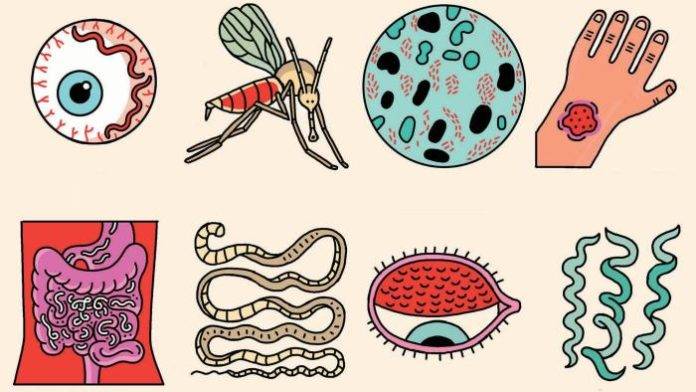GREAT BAY, Sint Maarten (DCOMM) – Sunday, January 30 marked World Neglected Tropical Diseases (NTD) Day. The day was commemorated by the World Health Organization (WHO) under the theme: “Achieving health equity to end the neglect of poverty-related diseases.”
This year marked the first time that the WHO participated in commemorating NTDs following last year’s establishment of the international day by the World Health Assembly.
According to the WHO, NTDs “…are widespread in the world’s poorest regions, where water safety, sanitation and access to health care are substandard.
“NTDs affect over 1 billion people globally and are caused mostly by a variety of pathogens including viruses, bacteria, parasites, fungi, and toxins.
“These diseases are “neglected” because they are almost absent from the global health agenda, enjoy little funding, and are associated with stigma and social exclusion. They are diseases of neglected populations that perpetuate a cycle of poor educational outcomes and limited professional opportunities.”
The Collective Prevention Services (CPS), a department within the Ministry of Public Health, Social Development and Labour (Ministry VSA), joined the WHO in creating awareness about NTDs, and according to WHO information, unprecedented progress has been achieved whereby 43 countries have eliminated at least one NTD.
Neglected tropical diseases include leprosy, dengue, and chikungunya, leishmaniasis, schistosomiasis, dog-mediated human rabies, scabies, chagas disease, intestinal parasites and trachoma are some of the more than 20 pathologies present in the Americas – where they are also known as neglected infectious diseases – afflicting more than 200 million people at risk, the Pan American Health Organization (PAHO) points out.
CPS continues to work diligently to provide the necessary surveillance to detect tropical diseases that may threaten public health. Its successful campaign against dengue and chikungunya is testament to this.
PAHO is working with its partners and member countries in pursuing a new initiative to eliminate some 30 infectious diseases and related conditions by 2030. Preventing and treating these diseases is cost-effective.






























